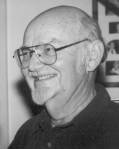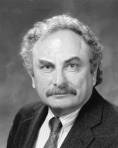|
Social Stress Experiences, Neuroadaptations and Cocaine Binges |
| Sunday, May 30, 2004 |
| 9:00 AM–9:50 AM |
| Beacon E |
| Area: BPH; Domain: Applied Research |
| CE Instructor: Amy Odum, Ph.D. |
| Chair: Amy Odum (Utah State University) |
| KLAUS MICZEK (Tufts University) |
 Dr. Klaus A. Miczek directs a psychopharmacology laboratory at Tufts University, where he serves as Moses Hunt Professor of Psychology, Psychiatry, Pharmacology and Neuroscience. He was originally educated in Berlin, Germany, and received a PhD in biopsychology from the University of Chicago. He has published some 160 research journal articles, 40 reviews and edited 12 volumes on psychopharmacological research concerning brain mechanisms of aggression, anxiety, social stress and abuse of alcohol and other drugs. He serves on research review committees for the National Institute on Drug Abuse, National Institute on Mental Health, and the National Institute on Alcoholism and Alcohol Abuse, among others. He has been the Coordinating Editor for behavioral pharmacology in laboratory animals at Psychopharmacology since 1992, and serves on the editorial board of half a dozen other journals. He has been president of the Division of Psychopharmacology and the Behavioral Pharmacology Society. He received an award from the American Psychological Association for “Outstanding Basic Psychopharmacological Research on Affective Disorders” and has been the recipient of a MERIT award from the National Institute on Alcoholism and Alcohol Abuse. He has lectured at numerous universities in the US and other countries and has received a number of international honors and awards. Dr. Klaus A. Miczek directs a psychopharmacology laboratory at Tufts University, where he serves as Moses Hunt Professor of Psychology, Psychiatry, Pharmacology and Neuroscience. He was originally educated in Berlin, Germany, and received a PhD in biopsychology from the University of Chicago. He has published some 160 research journal articles, 40 reviews and edited 12 volumes on psychopharmacological research concerning brain mechanisms of aggression, anxiety, social stress and abuse of alcohol and other drugs. He serves on research review committees for the National Institute on Drug Abuse, National Institute on Mental Health, and the National Institute on Alcoholism and Alcohol Abuse, among others. He has been the Coordinating Editor for behavioral pharmacology in laboratory animals at Psychopharmacology since 1992, and serves on the editorial board of half a dozen other journals. He has been president of the Division of Psychopharmacology and the Behavioral Pharmacology Society. He received an award from the American Psychological Association for “Outstanding Basic Psychopharmacological Research on Affective Disorders” and has been the recipient of a MERIT award from the National Institute on Alcoholism and Alcohol Abuse. He has lectured at numerous universities in the US and other countries and has received a number of international honors and awards. |
| Abstract: Salient social experiences trigger immediate early gene expression or suppression that are large, long lasting, and critical to the fundamental processes of neuroadaptation. These biologically significant stressors activate cells in the endogenous aminergic and peptidergic systems leading to sensitization as well as tolerance. We examine the hypothesis that this cascade of cellular events is the basis for neural dysregulation leading to out-of-control drug taking. Social stress engenders profound analgesia. The pharmacological tolerance to stress-induced analgesia appears to be based on a pattern of genes expressing specific opioid peptides and their receptors. Social stress also induces sensitization as expressed by an augmented response to psychomotor stimulants, and by inhibited zif268 expression in prefrontal cortical cells and increased zif268 expression in amygdaloid cells. One consequence of stress-induced sensitization is dysregulated cocaine binges. The delayed large increases in alcohol consumption in mice mutants lacking the CRH1 receptor gene highlight the enduring impact of salient experiences in gene expression and in heightened alcohol drinking. Our ongoing work on the neural circuits for social stress and intensely rewarding activities such as compulsive cocaine administration points to considerable overlap between them, and identifies targets for pharmacotherapeutic intervention in stress disorders and drug abuse. |
|
| |
| |
|
EAHB-SIG Distinguished Career Award: Murray Sidman, PhD |
| Sunday, May 30, 2004 |
| 10:30 AM–11:20 AM |
| Commonwealth |
| Area: PRA; Domain: Applied Research |
| CE Instructor: William J. McIlvane, Psy.D. |
| Chair: William J. McIlvane (E.K. Shriver Center, University of Massachusetts Medical School) |
| MURRAY SIDMAN (n/a) |
 Murray Sidman was born in 1923 in Boston, where he lived a happy but otherwise unremarkable boyhood until he graduated from high school and started at Columbia University in 1940. After an interruption for military service in World War II, he returned in 1946 to complete his BA. He then continued for a fifth undergraduate year in order to take all the science courses he had missed before, and went on to receive a PhD in 1952. His principal advisors were Fred S. Keller and W. N. Schoenfeld, with strong assists from Ralph Hefferline, Clarence Graham, and a small group of fellow graduate students. After that, he spent nine years in the exciting and productive interdisciplinary environment of the Walter Reed Army Institute of Research, where Joseph V. Brady had established a Psychology Department in the Neuropsychiatry Division headed by David McK. Rioch, From there, he went on to the Neurology Service of the Massachusetts General Hospital (MGH) for another nine years, during which his most memorable experience was meeting and eventually marrying Rita. The laboratories for human and nonhuman behavioral research that he set up at the MGH moved eventually to the E. K. Shriver Center and Northeastern University, where he remained as Professor of Psychology until he retired from academe and continued his research at the New England Center for Children. Since retiring from there in 2001, he has continued his research and writing without any formal affiliation. One of the most meaningful conclusions to come out of his lifetime of research is that the results of basic research must be extended out of the laboratory. Such extension not only adds an intrinsically valuable dimension to basic research, but is essential to its survival in a world of increasing competition for ever more limited resources. Murray Sidman was born in 1923 in Boston, where he lived a happy but otherwise unremarkable boyhood until he graduated from high school and started at Columbia University in 1940. After an interruption for military service in World War II, he returned in 1946 to complete his BA. He then continued for a fifth undergraduate year in order to take all the science courses he had missed before, and went on to receive a PhD in 1952. His principal advisors were Fred S. Keller and W. N. Schoenfeld, with strong assists from Ralph Hefferline, Clarence Graham, and a small group of fellow graduate students. After that, he spent nine years in the exciting and productive interdisciplinary environment of the Walter Reed Army Institute of Research, where Joseph V. Brady had established a Psychology Department in the Neuropsychiatry Division headed by David McK. Rioch, From there, he went on to the Neurology Service of the Massachusetts General Hospital (MGH) for another nine years, during which his most memorable experience was meeting and eventually marrying Rita. The laboratories for human and nonhuman behavioral research that he set up at the MGH moved eventually to the E. K. Shriver Center and Northeastern University, where he remained as Professor of Psychology until he retired from academe and continued his research at the New England Center for Children. Since retiring from there in 2001, he has continued his research and writing without any formal affiliation. One of the most meaningful conclusions to come out of his lifetime of research is that the results of basic research must be extended out of the laboratory. Such extension not only adds an intrinsically valuable dimension to basic research, but is essential to its survival in a world of increasing competition for ever more limited resources. |
| Abstract: Does the name of this special interest group The Experimental Analysis of Human Behavior, imply that those who analyze the behavior of human animals must organize themselves apart from those who analyze the behavior of nonhuman animals? Is the use of nonhumans in experiments really not relevant to the analysis of the behavior of humans? If so, then something must have changed. Many differences exist, of course, between the behavior of humans and nonhumans humans, for example, cannot fly under their own power but have we really isolated differences in principle, differences that require separate organizations for the study of each? I will try to indicate why I believe this is a serious concern, where the concern comes from, and what, perhaps, might be done to maintain what was once a flourishing bi-directional relation between research with humans and nonhumans, in both basic and applied research. |
|
| |
| |
|
Autism: The Relationship of Pivotal Response Treatment and Positive Behavioral Support |
| Sunday, May 30, 2004 |
| 11:00 AM–11:50 AM |
| Back Bay A |
| Area: AUT; Domain: Applied Research |
| CE Instructor: Jack Scott, Ph.D. |
| Chair: Jack Scott (Florida Atlantic University) |
| ROBERT L. KOEGEL (University of California, Santa Barbara), Lynn Kern Koegel (University of California, Santa Barbara) |
 Drs. Robert L. Koegel and Lynn Kern Koegel have been innovators in behavioral research with children with autism for many years. Robert L. Koegel is PhD Director and Autism Research Center Professor of Clinical, Counseling, and School Psychology, and Professor of Special Education, Disability, and Risk Studies at the Gevirtz Graduate School of Education, University of California, Santa Barbara. Drs. Robert L. Koegel and Lynn Kern Koegel have been innovators in behavioral research with children with autism for many years. Robert L. Koegel is PhD Director and Autism Research Center Professor of Clinical, Counseling, and School Psychology, and Professor of Special Education, Disability, and Risk Studies at the Gevirtz Graduate School of Education, University of California, Santa Barbara. |
| Abstract: The purpose of this presentation is to address issues and present data that are relevant to Pivotal Response Treatment and Positive Behavioral Support Interventions for children with autism and their families. Topics will include a discussion of the identification of specific prognostic indicators associated with highly favorable outcomes following intervention; and a discussion of procedures used to conduct interventions in key pivotal areas that can change a previously poor prognosis to a favorable prognosis. The relevance of each of these topic areas will be discussed within the context of behavioral teaching strategies in the developing trend in comprehensive interventions for children with autism. |
|
| |
| |
|
"The Inertia of Affluence" |
| Sunday, May 30, 2004 |
| 1:30 PM–2:20 PM |
| Beacon H |
| Area: CSE; Domain: Applied Research |
| CE Instructor: Christine T. Lowery, Psy.D. |
| Chair: Christine T. Lowery (University of Wisconsin-Milwaukee) |
| JOHN A. NEVIN (University of New Hampshire, Emeritus) |
 Dr. John A. Nevin, known as Tony, has tried to combine his concerns about war and weapons of mass destruction with his academic work. During his graduate school years at Columbia, he attended regular discussions of nuclear disarmament (with five other students – it was like a little antinuclear cell). While teaching at Swarthmore College, he joined the small but growing movement against US involvement in Vietnam, and served as a draft counselor when he returned to Columbia as a professor. At the University of New Hampshire, he offered an interdisciplinary course entitled “Nuclear War” when his departmental teaching schedule permitted, and this year he went back to UNH after seven years of retirement to teach a comprehensive course on “War and Peace” (including material on behavioral processes). He enjoys his reverse sabbatical and hopes his students will find their own ways to oppose war. Dr. John A. Nevin, known as Tony, has tried to combine his concerns about war and weapons of mass destruction with his academic work. During his graduate school years at Columbia, he attended regular discussions of nuclear disarmament (with five other students – it was like a little antinuclear cell). While teaching at Swarthmore College, he joined the small but growing movement against US involvement in Vietnam, and served as a draft counselor when he returned to Columbia as a professor. At the University of New Hampshire, he offered an interdisciplinary course entitled “Nuclear War” when his departmental teaching schedule permitted, and this year he went back to UNH after seven years of retirement to teach a comprehensive course on “War and Peace” (including material on behavioral processes). He enjoys his reverse sabbatical and hopes his students will find their own ways to oppose war. |
| Abstract: In the 1980s, Skinner spoke several times on Why we are not acting to save the world. He suggested that the lack of action resulted from the fact that behavior cannot be controlled by future events, and that advice or warnings about the future may not be heeded unless the source is highly reliable and the predicted events are imminent. The problem is related to self-control. For example, the immediate and certain economic advantages of resource exploitation for a few outweigh its apparently remote, uncertain and distributed ecological consequences. Another reason for inaction is the inertia of affluence (McKibben, The End of Nature). Research has shown repeatedly that behavior is more resistant to change in situations with high overall reinforcer rates, regardless of whether all reinforcers are contingent on the target behavior. Thus, in the affluent society of the US, behavioral patterns will be highly persistent even when they are counterproductive in the long run. Potent disrupters are needed to alter behavior in a reinforcer-rich environment. I will consider the disruptive effects of 9/11 on some behavioral patterns that, if unchanged, may bring humankind to a premature end. |
|
| |
| |
|
Behavioral Analysis and Medical Strategy: A Case Study in "Terminal" Cancer |
| Sunday, May 30, 2004 |
| 1:30 PM–2:20 PM |
| Commonwealth |
| Area: EAB; Domain: Applied Research |
| CE Instructor: Kennon Andy Lattal, Psy.D. |
| Chair: Kennon Andy Lattal (West Virginia University) |
| BEN A. WILLIAMS (University of California, San Diego) |
 Dr. Ben Williams received his PhD from Harvard University in 1970. For three years he taught at Colorado College before moving to the University of California, San Diego, where he has been on the faculty of the Psychology Department for 30 years. The research areas in which he has published include conditioned reinforcement, choice, behavioral contrast, delay of reinforcement, stimulus control, and Pavlovian conditioning. His current research also includes the investigation of the relation between intelligence scores and learning rate. Dr. Williams has been on the editorial boards of the Journal of the Experimental Analysis of Behavior, Journal of Experimental Psychology: Animal Behavior Processes, Animal Learning and Behavior, Learning and Motivation, Psychonomic Bulletin and Review, and Behavior and Philosophy. He was recently elected to the Society of Experimental Psychologists (SEP). In 1995, Dr. Williams was diagnosed with brain cancer, an experience about which he wrote a book (2002): 'Surviving “Terminal” Cancer: Clinical Trials, Drug Cocktails, and Other Treatments Your Oncologist Won’t Tell You About’. Dr. Ben Williams received his PhD from Harvard University in 1970. For three years he taught at Colorado College before moving to the University of California, San Diego, where he has been on the faculty of the Psychology Department for 30 years. The research areas in which he has published include conditioned reinforcement, choice, behavioral contrast, delay of reinforcement, stimulus control, and Pavlovian conditioning. His current research also includes the investigation of the relation between intelligence scores and learning rate. Dr. Williams has been on the editorial boards of the Journal of the Experimental Analysis of Behavior, Journal of Experimental Psychology: Animal Behavior Processes, Animal Learning and Behavior, Learning and Motivation, Psychonomic Bulletin and Review, and Behavior and Philosophy. He was recently elected to the Society of Experimental Psychologists (SEP). In 1995, Dr. Williams was diagnosed with brain cancer, an experience about which he wrote a book (2002): 'Surviving “Terminal” Cancer: Clinical Trials, Drug Cocktails, and Other Treatments Your Oncologist Won’t Tell You About’. |
| Abstract: Existing medical treatments for many diseases are ineffective. Yet physicians persist in using the best available treatments even when they are known to be essentially worthless and cause considerable harm. Behavior analysis and clinical medicine have many similarities in terms of features of their data but differ markedly in their concepts of evidence. Adoption of behavior analytic concepts facilitate the problem solving needed to maximize clinical outcomes. |
|
| |
| |
|
The 2004 OBM Network Lifetime Achievement Award Presentation: The Chamber of Commerce Made Me Do It: Pearley School--How/Why I Got Involved in OBM |
| Sunday, May 30, 2004 |
| 1:30 PM–2:20 PM |
| Liberty B |
| Area: OBM; Domain: Applied Research |
| CE Instructor: Jared A. Chase, Psy.D. |
| Chair: Jared A. Chase (University of Nevada, Reno) |
| D. CHRIS ANDERSON (1934-2003), Charles R. Crowell (University of Notre Dame) |
 Dr. Anderson received his PhD in Experimental Psychology (Behavioral Neuroscience) from the joint program offered by University of Oregon Medical School and University of Portland in 1963. After earning his degree, he held three post-doctoral NIMH research fellowships: at Stanford Medical School (1965-1971), University of Southern California (1975), and at University of Minnesota (1976). Dr. Anderson held appointments at the Menninger Foundation and Washburn University (1963-1965); Brigham Young University (1965-1967); and finally, at the University of Notre Dame (1967-1996), where he was Professor Emeritus until has death on December 19, 2003. Dr. Anderson authored approximately 90 publications, two textbooks on the methods of experimental psychology, a monograph in the Journal of Organizational Behavior Management, and several chapters in edited books. He delivered more than 100 presentations at scientific conventions, and was awarded nearly $1.2 M in research grants or contracts. Funding for these grants and contracts came from sources such as the National Science Foundation (NSF) and National Institutes of Mental Health (NIMH) for his basic research, and from Whirlpool, KitchenAid, Hillshire Farms, Donnelly Press, and many other companies for his organizational research. Dr. Anderson received his PhD in Experimental Psychology (Behavioral Neuroscience) from the joint program offered by University of Oregon Medical School and University of Portland in 1963. After earning his degree, he held three post-doctoral NIMH research fellowships: at Stanford Medical School (1965-1971), University of Southern California (1975), and at University of Minnesota (1976). Dr. Anderson held appointments at the Menninger Foundation and Washburn University (1963-1965); Brigham Young University (1965-1967); and finally, at the University of Notre Dame (1967-1996), where he was Professor Emeritus until has death on December 19, 2003. Dr. Anderson authored approximately 90 publications, two textbooks on the methods of experimental psychology, a monograph in the Journal of Organizational Behavior Management, and several chapters in edited books. He delivered more than 100 presentations at scientific conventions, and was awarded nearly $1.2 M in research grants or contracts. Funding for these grants and contracts came from sources such as the National Science Foundation (NSF) and National Institutes of Mental Health (NIMH) for his basic research, and from Whirlpool, KitchenAid, Hillshire Farms, Donnelly Press, and many other companies for his organizational research. |
| Abstract: Chiding from the local Chamber about doing relevant research shamed Chris into taking on an all Afro-American 6th grade class (Pearley School) described as out of control as a first venture into applied behavior analysis. The presentation describes his unexpected success and how it led to escalating involvement in over 400 business/organizational OBM projects (some more complete than others), a graduate program, some really intricate OBM doctoral applications, and collaboration with truly talented student-researchers. Now, some 35 y later, OBM may be faced with a so-called paradigm shift. Some of Chriss final reflections on this shift will be presented. |
|
| |
| |
|
The Unique Role of Development for Learning |
| Sunday, May 30, 2004 |
| 1:30 PM–2:20 PM |
| Hampton |
| Area: DEV; Domain: Applied Research |
| CE Instructor: Gerald Turkewitz, Ph.D. |
| Chair: Jacob L. Gewirtz (Florida International University) |
| GERALD TURKEWITZ (Hunter College of the City University of New York) |
 Dr. Gerald Turkewitz received his BA from City College of New York and his PhD in Comparative Psychology from New York University. He began his research career in the Department of Animal Behavior of the American Museum of Natural History where, in conjunction with T. C. Schneirla, J. S. Rosenblatt and Ethel Tobach, he studied the development of social behavior in kittens and stress adjustment in rats. His dissertation, carried out under Schneirla, dealt with the development of cage orientation in rats. He joined Herbert G. Birch at the Einstein College of Medicine and began studying sensory and intersensory functioning in human infants. He has continued and expanded these research directions with his appointment to Hunter College. Throughout his career, development with a particular concern for the role of sensory function in shaping behavior has been focal. This has led to investigations of a variety of organisms, including rabbits and chinchillas. His belief in the complex interactions between different levels of and facets of an organism’s biology and environment have resulted in a consideration of the relationship between the senses, aspects of motor function, learning, the social milieu, and the development of the nervous system, among others, in the organization of cognitive functions. Most recently he has been concerned with the developing exemplars of ways in which disparate elements in the life histories of organisms shape developmental trajectories. Dr. Gerald Turkewitz received his BA from City College of New York and his PhD in Comparative Psychology from New York University. He began his research career in the Department of Animal Behavior of the American Museum of Natural History where, in conjunction with T. C. Schneirla, J. S. Rosenblatt and Ethel Tobach, he studied the development of social behavior in kittens and stress adjustment in rats. His dissertation, carried out under Schneirla, dealt with the development of cage orientation in rats. He joined Herbert G. Birch at the Einstein College of Medicine and began studying sensory and intersensory functioning in human infants. He has continued and expanded these research directions with his appointment to Hunter College. Throughout his career, development with a particular concern for the role of sensory function in shaping behavior has been focal. This has led to investigations of a variety of organisms, including rabbits and chinchillas. His belief in the complex interactions between different levels of and facets of an organism’s biology and environment have resulted in a consideration of the relationship between the senses, aspects of motor function, learning, the social milieu, and the development of the nervous system, among others, in the organization of cognitive functions. Most recently he has been concerned with the developing exemplars of ways in which disparate elements in the life histories of organisms shape developmental trajectories. |
| Abstract: Features of development create special circumstances in which aspects of learning are both constrained and given systematic attributes which in turn influence subsequent development. It will be argued that the paucity of sensory input, i.e., the sequential onset of the senses and their relatively limited sensitivity, prevents young organisms from experiencing James buzzing booming confusion and simplifies the task of selective learning. It is proposed that early features of learning provide a scaffolding for subsequent learning. The purpose will be instantiated by examining the manner in which fetal exposure to maternal speech influences hemispheric specialization and subsequent processing of facial information, contributing to the separation of analytic and holistic modes of information processing in the two hemispheres. Suggestive data on the way in which fetal learning of taste preferences by rats come to influence preferences for novel and familiar experiences will also be presented. In addition preliminary data from rabbits that suggests that priming by learning in an early developing system facilitates, or indeed enables, learning in a later developing system will be presented. The foregoing represents an extension of T. C. Schneirlas genuinely interactive position which avoids the largely sterile issue of nature vs. nurture by placing learning and the role of experience in a biological and ecological framework. |
|
| |
| |
|
Toward a Comprehensive and Coherent Science of Behavior |
| Sunday, May 30, 2004 |
| 1:30 PM–2:20 PM |
| Republic B |
| Area: TPC; Domain: Applied Research |
| CE Instructor: John W. Donahoe, Psy.D. |
| Chair: John W. Donahoe (University of Massachusetts) |
| PAUL THOMAS ANDRONIS (Northern Michigan University) |
 Dr. Paul Thomas Andronis is a Professor in the Department of Psychology at Northern Michigan University, and serves as Director of the undergraduate option in behavior analysis. After completing the MS in zoology at Western Illinois University, he worked for two years at the Northwestern University Institute of Psychiatry, and then entered graduate study in biopsychology at the University of Chicago, working with Prof. Israel Goldiamond. He served as a research assistant both in the Parent Health/Infant Development Project in the Department of Psychiatry, conducting electromyographic research on reflexive behaviors of heroin- and methadone-addicted neonates, and in the Behavior Analysis Research Laboratory, training Illinois state psychiatric staff in applied behavior analysis, and conducting basic research in signal detection studies on temporal discrimination and the analysis of complex social behavior by pigeons, and on schedule-induced defecation in rats. Upon completing the MS and PhD, he remained at Chicago for three years as a U.S.P.H.S. Postdoctoral Research Fellow in Psychiatry. He was then appointed Assistant Professor of Clinical Psychiatry at the Chicago College of Osteopathic Medicine, where he established the Section on Behavioral Medicine and eating disorders units at both the Chicago and Olympia Fields Osteopathic Medical Centers. The University of Chicago then recruited him to the faculties in Behavioral Medicine for both the Departments of Psychiatry and Gastroenterology, conducting applied research on the treatment of obesity, and as an instructor in the Committee on Biopsychology, in the area of ethology. In 1990, he left Chicago for Northern Michigan University, where he was hired to direct the undergraduate behavior analysis option. In addition to regular teaching duties in the Department of Psychology and the NMU Honors Program, he supervises the practicum in applied behavior analysis, and maintains active laboratories for basic research on contingency adduction with pigeons, and stimulus equivalence with people. He also serves as President of the Board of Directors of a group home for adults with mental retardation. Dr. Paul Thomas Andronis is a Professor in the Department of Psychology at Northern Michigan University, and serves as Director of the undergraduate option in behavior analysis. After completing the MS in zoology at Western Illinois University, he worked for two years at the Northwestern University Institute of Psychiatry, and then entered graduate study in biopsychology at the University of Chicago, working with Prof. Israel Goldiamond. He served as a research assistant both in the Parent Health/Infant Development Project in the Department of Psychiatry, conducting electromyographic research on reflexive behaviors of heroin- and methadone-addicted neonates, and in the Behavior Analysis Research Laboratory, training Illinois state psychiatric staff in applied behavior analysis, and conducting basic research in signal detection studies on temporal discrimination and the analysis of complex social behavior by pigeons, and on schedule-induced defecation in rats. Upon completing the MS and PhD, he remained at Chicago for three years as a U.S.P.H.S. Postdoctoral Research Fellow in Psychiatry. He was then appointed Assistant Professor of Clinical Psychiatry at the Chicago College of Osteopathic Medicine, where he established the Section on Behavioral Medicine and eating disorders units at both the Chicago and Olympia Fields Osteopathic Medical Centers. The University of Chicago then recruited him to the faculties in Behavioral Medicine for both the Departments of Psychiatry and Gastroenterology, conducting applied research on the treatment of obesity, and as an instructor in the Committee on Biopsychology, in the area of ethology. In 1990, he left Chicago for Northern Michigan University, where he was hired to direct the undergraduate behavior analysis option. In addition to regular teaching duties in the Department of Psychology and the NMU Honors Program, he supervises the practicum in applied behavior analysis, and maintains active laboratories for basic research on contingency adduction with pigeons, and stimulus equivalence with people. He also serves as President of the Board of Directors of a group home for adults with mental retardation. |
| Abstract: While behavior analysis often lays claim to being the science of behavior, and rationalizes this claim by pointing to its singular accomplishments in applied enterprises, behavior analysis occupies an unheralded position among other fields that not only make the same claim, but glean substantially more of societys material and intellectual resources for research, and wield more powerful influence over its cultural landscape. Little scientific progress resulted from the so-called cognitive revolution, and following the Decade of the Brain, organic approaches (with cognitive science tagging along beside) have ascended to favored positions among the behavioral sciences The present paper argues that, in this, the fourth year of the Decade of Behavior and the hundredth anniversary of Skinners birth, behavior analysis can provide a unifying and coherent paradigm for a comprehensive theory of behavior that includes exciting new findings from a range of other disciplines. It calls for more thorough education of behavior analysts in areas like evolutionary neurobiology and ethology, concerted efforts to forge collaborative alliances with researchers and intellectuals in these other fields, and an attempt to frame our knowledge of behavioral relations in a vocabulary that acknowledges and embraces important contributions made by other areas. |
|
| |
| |
|
Varieties of Scientific Research |
| Sunday, May 30, 2004 |
| 2:30 PM–3:20 PM |
| Republic B |
| Area: TPC; Domain: Applied Research |
| CE Instructor: Armando Machado, Ed.D. |
| Chair: David C. Palmer (Smith College) |
| ARMANDO MACHADO (University of Minho, Portugal) |
 Armando Machado was an undergraduate student in Portugal, studied for two years in Belgium, and then in 1993 obtained his PhD with John Staddon at Duke University. His doctoral research on the conditions in which pigeons generate highly variable behavior received the Annual Dissertation Award from Division 25 of APA. From 1994 until 2000, Armando was a professor at Indiana University (first Assistant and then Associate with tenure). In 2001, he moved to the University of Minho in the north of Portugal where he continues to study a variety of issues related to behavior and learning (e.g., time and number discrimination, choice). In most of his studies, Armando contrasts data with the predictions of simple mathematical models of behavior. In addition to the psychology of learning and mathematics, he has interests in evolutionary biology, philosophy, and the history of psychology. His work has been published in various journals (e.g., Psychological Review, Journal of the Experimental Analysis of Behavior, Psychological Science, Behavior and Philosophy, etc.) and funded by NIH and the Portuguese Science Foundation. He was the Program Chair and then the President of the Society for the Quantitative Analyses of Behavior. He served as Associate Editor of Psychonomic Bulletin & Review and is currently a member of the editorial board of several journals. In collaboration with Francisco Silva from the University of Redlands, Armando Machado has just published a hands-on, graphics-based workbook to be used in the teaching of learning. Armando Machado was an undergraduate student in Portugal, studied for two years in Belgium, and then in 1993 obtained his PhD with John Staddon at Duke University. His doctoral research on the conditions in which pigeons generate highly variable behavior received the Annual Dissertation Award from Division 25 of APA. From 1994 until 2000, Armando was a professor at Indiana University (first Assistant and then Associate with tenure). In 2001, he moved to the University of Minho in the north of Portugal where he continues to study a variety of issues related to behavior and learning (e.g., time and number discrimination, choice). In most of his studies, Armando contrasts data with the predictions of simple mathematical models of behavior. In addition to the psychology of learning and mathematics, he has interests in evolutionary biology, philosophy, and the history of psychology. His work has been published in various journals (e.g., Psychological Review, Journal of the Experimental Analysis of Behavior, Psychological Science, Behavior and Philosophy, etc.) and funded by NIH and the Portuguese Science Foundation. He was the Program Chair and then the President of the Society for the Quantitative Analyses of Behavior. He served as Associate Editor of Psychonomic Bulletin & Review and is currently a member of the editorial board of several journals. In collaboration with Francisco Silva from the University of Redlands, Armando Machado has just published a hands-on, graphics-based workbook to be used in the teaching of learning. |
| Abstract: Since its inception in the sixteenth and seventeenth centuries, modern science has been characterized by a rich variety of activities. Researchers experiment in the laboratory, quantify functional relations, build theories and models, test hypotheses, estimate parameters, refine old techniques and devise new ones, review manuscripts, etc. By means of these activities, the scientist moves constantly from Observation to Theory and from Theory to Observation. The bridge connecting the two domains is, broadly speaking, the scientific method. I will elaborate on the scientific method with the aim of singling out for analysis the subset of scientific activities related to conceptual investigations. Through examples from the study of Learning and Behavior (e.g., models and theories of time and number discrimination, choice, and schedule performance), I will attempt to characterize conceptual investigations, describe some of their types and purposes, and identify their limitations. If scientific progress requires not only the colligation of facts but also the clarification of concepts, then standard methodology courses and textbooks must replace a narrow, algorithmic view of method, with a wider view, a view in which the varieties of scientific research in general and conceptual investigations in particular receive their proper weight. |
|
| |
| |
|
A Joint Control Analysis of Generalized Abstract Responding |
| Sunday, May 30, 2004 |
| 3:30 PM–4:20 PM |
| Independence West |
| Area: VBC; Domain: Applied Research |
| CE Instructor: Robert G. Vreeland, Psy.D. |
| Chair: Robert G. Vreeland (Behavior Analysis & Intervention Services) |
| BARRY LOWENKRON (California State University, Los Angeles) |
 Dr. Barry Lowenkron is Professor of Psychology and director of the ABA-accredited MS program in applied behavior analysis at California State University Los Angeles. Although his doctoral training was in cognitive psychology with a focus on the role of language in mediating complex performances, he rather quickly became dissatisfied with the ambiguous theories that characterize cognitive psychology. He was equally dissatisfied with psychology’s dogmatic insistence on group research designs and the statistical analysis they required in order to see if an experimental effect had occurred. It seemed that this analysis moved the experimenter away from, rather than closer to, the critical characteristics of the performance under study. After several stimulating discussions with Derek Hendry and a close reading of Sidman’s Tactics of Scientific Research, along with attendance to several early meetings of ABA, Dr. Lowenkron saw the light and switched to a radical behaviorist orientation. Since that time, he has pursued his original research topic; no longer by studying the role of language in mediating complex performances, but rather, for the last 20 years, by studying the role of Skinner’s verbal operants, especially the role of joint control, in complex generalized performances. This research program has resulted in the publication of a steady stream of research and theory articles in the behavior-analytic journals. Dr. Barry Lowenkron is Professor of Psychology and director of the ABA-accredited MS program in applied behavior analysis at California State University Los Angeles. Although his doctoral training was in cognitive psychology with a focus on the role of language in mediating complex performances, he rather quickly became dissatisfied with the ambiguous theories that characterize cognitive psychology. He was equally dissatisfied with psychology’s dogmatic insistence on group research designs and the statistical analysis they required in order to see if an experimental effect had occurred. It seemed that this analysis moved the experimenter away from, rather than closer to, the critical characteristics of the performance under study. After several stimulating discussions with Derek Hendry and a close reading of Sidman’s Tactics of Scientific Research, along with attendance to several early meetings of ABA, Dr. Lowenkron saw the light and switched to a radical behaviorist orientation. Since that time, he has pursued his original research topic; no longer by studying the role of language in mediating complex performances, but rather, for the last 20 years, by studying the role of Skinner’s verbal operants, especially the role of joint control, in complex generalized performances. This research program has resulted in the publication of a steady stream of research and theory articles in the behavior-analytic journals. |
| Abstract: Certainly the biggest impediment to the development of a complete behavior analysis of human behavior lies in the problem of accounting for generalized responding: that is, accounting for responding appropriately to hitherto untrained stimuli. While behavior analysis can account for primary or concrete generalization, that is, generalization along a physical dimension, it has not yet developed a parsimonious and complete account of generalized responding based on abstractions; that is generalization responding based on relations between stimuli. These relations consists of two sorts. The first sort involves relations between words and objects, while the second consists of relationships between objects themselves. Thus the first sort involves questions such as how words only trained to be emitted as names (objectword responding) can, without further training, serve to select objects (word-object responding). The second sort of relation involves performances as abstract as seeking an object in response to a given description, and then, upon failing to find the specified object, modifying the description in a systematic fashion so as to select some other object bearing the same relation as the original (e.g., find the next largest object). In this paper we shall see how the simple notion of joint control serves to provide a parsimonious behavioral account of these and other seemingly conceptual performances.. |
|
| |